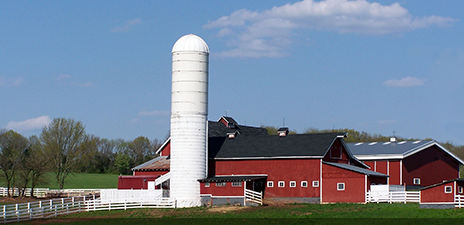
A newspaper recently ran an editorial in opposition to easing development restrictions in the Highlands region with an argument that read:
“The (Highlands) law is not designed to balance those (environmental) protections against the need to continue promoting economic growth across the region.”
That statement, simply, is incorrect. One would only have to read three paragraphs into the Highlands Act to come across the following:
“The Legislature further finds and declares that the New Jersey Highlands provides a desirable quality of life and place where people live and work; that it is important to ensure the economic viability of communities throughout the New Jersey Highlands; and that residential, commercial, and industrial development, redevelopment, and economic growth in certain appropriate areas of the New Jersey Highlands are also in the best interests of all the citizens of the State, providing innumerable social, cultural, and economic benefits and opportunities.”
Protecting the quality of life of Highlands residents, ensuring the economic viability of Highlands communities, and promoting economic growth in appropriate areas of the Highlands are, in fact, clearly designated goals of the Highlands Act.
Despite this, certain opinion page editorial writers and overly zealous environmentalists continue to oppose any loosening of restrictions that would allow those economic growth provisions to be met.
That proved to be the case with the New Jersey Department of Environmental Protection’s (NJDEP) carefully crafted proposal to revise septic density standards in the Highlands region.
Through a scientific analysis of reams of data on well water tests provided by the U.S. Geological Survey, the NJDEP concluded that the region could support additional development without adversely affecting the quality of water resources. This was calculated based on over 19,000 points of data as opposed to only 52 data points when the original Highlands rules on septic density standards were put in place.
Despite the data and science supporting the NJDEP’s proposal, opponents continue to fight the proposal with baseless claims.
This demonstrates the tendency of many to only accept scientific results that support their predispositions, and the difficulty lawmakers face when emotions and science collide in the sphere of public policy.
We all have an interest in preserving our environment, but since the enactment of the Highlands Act, it has been a continuing challenge in fighting for balance between needed economic development opportunities in the region against overly strict environmental regulations.
Ardent environmentalists have argued for the strictest interpretation of the law’s conservation components, which makes most new development in the Highlands all but impossible when applied to the Highlands Regional Master Plan and the environmental regulations that govern overall development in the region.
Residents and business owners, conversely, have attempted to highlight how the substantial development restrictions imposed on the region have severely impacted property values and limited their ability to enjoy and make use of their properties, without due compensation.
Many residents of the region believe, as I do, that the economic goals of the Act have been completely ignored as strident environmental organizations have used their political influence to tip the scales completely against any development no matter how reasonable.
I support the revised septic density standards because they do represent a more fair and balanced approach to development that has the potential to restore at least some of the decline in economic value to the family farms and thousands of landowners who have been negatively impacted by overly restrictive Highlands regulations.
These revisions will stimulate job creation and economic opportunity, while still protecting the water quality and carefully preserved open space throughout the region. After all, as written, that was supposed to be a goal of the Highlands Act.
_____


